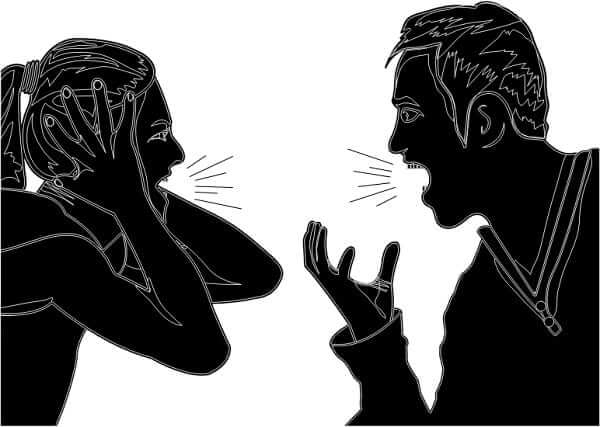From road rage and domestic violence to inter-faith and international conflicts, the prevailing emotion that triggers these events is anger. For both individuals and large groups, anger fuels aggression which can lead to destructive events. In these instances, understanding anger as an emotional response can be quite useful.
A revealing perspective on how anger triggers hatred and aggression is highlighted in the award-winning documentary film on Muslim-Christian relations, The Imam and the Pastor. This documentary, filmed in Nigeria a few years ago, follows the dialogue and personal interactions between an imam and a priest in the Kaduna district where a major inter-religious conflict had erupted resulting in many casualties. Both these respected religious leaders candidly discuss their beliefs, their rather violent pasts and hatred for the other’s religious belief. However, a moment of reflection leads them to question their anger and hatred.
The result is the formation of an inter-faith mediation centre where slowly and steadily they transform the community to bring about peace.
The film illustrates the evolution of the two individuals from their own experience. Both recount the teachings from their religious perspective that emphasise peace, love and living in harmony. As the priest says, “How could I preach love when I had so much hatred in me?” The imam recollects that the Quran is very clear in not resorting to violent means to settle disputes.

The journey of transformation from anger and hatred to mutual trust and respect gives a clear insight into understanding anger and the process of transforming it for positive change. This is the upside when the energy generated by anger is used positively to actively work for the betterment of the community. Clearly, in the earlier years, this very anger had turned into hatred and led these two men to be radical in their views and be violent.
READ ALSO: How to be better at communication
Where does anger come from?
One of the fundamental emotions we as humans experience is fear. In interpersonal interactions, the unknown causes us to be fearful of anything that is different. This starts a cycle of ignorance leading to fear, which sometimes turns to anger, then to hatred leading to violence.
In simple, everyday interactions, we may not be fearful but when we are frustrated, such as when our efforts are thwarted or when we expect something and it is not achieved, we become angry.
A toddler throws a tantrum when she does not get what she wants. An adult shouts when he expects something to be done and finds it has not been done. An elderly man becomes angry when he is unable to do something because of his frailty. Frustrations lead us to becoming angry.
Even though, most of the time we point to an outside source as ‘making us angry’, it is actually an emotional response, an emotion that stems from within oneself. Frustrations can be with oneself or with others. When frustration is directed outwards it takes the form of aggression, but turned towards oneself it can lead to dejection, and a sense of hopelessness.
One of the puzzling things about anger is that it can be a useful emotion when used well. It can stir the individual to take action in positive ways when a wrong deed has to be corrected. Yet, more commonly, when blinded by anger you can become irrational, and act in ways that can be very damaging. The impulsive action that follows anger can lead to aggression that is regretted later.
Psychologists often refer to anger as being part of a two-sided coin. The upside is when it energises and helps the individual to take action. The downside is when it can so easily become a wish and transforms the individual to hurt or harm to satisfy that wish. People often ask the question, ‘Is it better to express anger or suppress it?’ Over expression of anger in attacking, yelling or belittling only fuels more anger. Yet under expression of anger can also be harmful increasing feelings of helplessness and anxiety. Both ways of dealing with anger present different problems and require different solutions.
Dealing with anger
We cannot avoid people, things or situations that make us angry, but we can learn how not to react angrily when this happens. During times of high levels of stress, we can become irritable leading us to ‘lose our cool’. At these times, ideas or suggestions expressed harshly or in hurtful ways can damage friendships or relationships.
Irritability and being impulsive are quite often the trigger points for anger. Acting or speaking harshly in the spur of the moment may be the way some hostile interactions begin. It is important to watch out for such trigger points when learning to control anger.

Firstly, we need to become aware of what words we use that might fuel others to react angrily. For example, using strong words such as ‘I must’ or ‘you must’ is demanding and aggressive. If the same is said as ‘I would like to’, it is more likely to get a better response.
Often statements that start with ‘you never’ or ‘you always’ become trigger points for arguments that so easily develop into angry outbursts. It may be important to tell the other person that you can talk about it later, before such outbursts occur.
The fundamental starting point is realising that how you express anger is becoming a source of distress and that something needs to change, starting with you.
As the imam and the priest illustrate in the film, the first step and realisation that anger is your reaction has to come from within; the second step must be a commitment to change and finally to follow through the necessary steps to control it directing the energy to achieve beneficial goals.
READ ALSO: Benefits of mindfulness meditation







